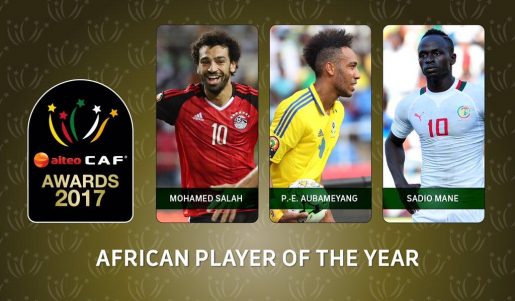The annual African Footballer of the Year award is the most prestigious individual silverware that an African footballer can win in the continent. That has been the case since 1970 when the sports magazine, France Football, made the first such award.
Since 1992, the Confederation of African Football (CAF) has taken control of the award ensuring its control by an African organisation. However, that control has not made the award any better. Instead, it has exacerbated the trend to present the award to the best European-based African footballer, in a sense distancing the award from what it is expected to connote i.e. the best footballer in competitions played in Africa.
The most tragic of such an example of the trend occurred in 2001 when Samuel Kuffour, a player who did not play for an African club and who had refused to appear for an African national team in the award year, finished as high as second place. It was, indeed, a travesty that someone who had not so much as worn the shirt of an African team in the year was nearly named the top African player.
To be sure, this award is not and should not be presented to someone whose sole claim of being an African footballer is via birth. Instead it is an award that should go to someone who has sweated and performed for a team that has an African identity and to someone who has featured in an African competition.
In a sense, Jeremy Brockie, born a New Zealander, but who plays for Supersport FC of South Africa is more qualified to be considered for the award than Tammy Abraham, a footballer of African parentage, who has played nary a minute for an African team.

Awards Made by Other Confederations
The Kuffour example is indeed a warning worth heeding. In no other confederation, any where in the world, would someone like Samuel Kuffour have been eligible in the year he finished second for the African award. It was such a shock.
The Asian Confederation considers Asian players in the continent and those playing outside the continent for its award. However, these nominees must have played for an Asian club or national team. Asia, also, has another award for players with foreign-citizenship who play in Asia.
CONCACAF does not establish eligibility based on citizenship but requires that nominees have played in a CONCACAF competition or for a CONCACAF team. Kuffour could not have been eligible.
South America had a similar rule as CONCACAF until 1986 when nominees were limited to only players who play in South American leagues or in Mexico. Thus, the likes of Lional Messi, Kun Aguero, Neymar, and Luis Suarez, citizens of South American countries, are ineligible.
Europe’s award simply goes to a player of any citizenship as long as the player plays for a European club. This is similar to the current eligibility rule in the South American award.
In essence, the most liberal of the awards can be found in Africa and CONCACAF and the most restrictive in Europe and South America with Asia somewhat in the middle of the pack.
Why Does a Re-Think Matter for Africa?
Why does it matter to re-think criteria for such an award in Africa? There are two major but related reasons. First, the current system where the performance of a player for his European club trumps performance for an African team essentially denigrates African continental competitions. African competitions should be the primary basis for such award and not what a player does for a club in England or Spain or Germany. Second, by prioritizing performance in African competitions, the value of those competitions is highlighted.
To achieve this re-thinking and a renewed focus on African competitions, CAF would need to provide detailed and restrictive guide to voters. This guide should clearly state the higher valuation of African-based competitions such as the AFCON, World Cup qualifiers, and the continental competitions for clubs. Performance for clubs in Europe or elsewhere should be undervalued.
As we can see, this is still more liberal than criteria for Footballer of the Year in both Europe and South America where performance outside of those regions are not accepted, let alone undervalued. While one may argue that it works for Europe because the best European-born players play in Europe, that is not the case for South America where their best are outside the continent and not eligible for the continental award. In essence, if South America can live with it, it certainly does not lead to a death sentence. Nevertheless, my argument here is not to be as restrictive as South America but simply to highlight African competitions.
Beyond changing the voters’ guide, CAF should expand the pool of voters to include journalists who are accredited observers to multiple games in the continent. These journalists are more likely to watch more games than the national coaches and captains who currently vote for the African Footballer of the Year. This expansion of voter pool will likely reduce the tendency to focus on players who play in Europe and are readily watched on television.














